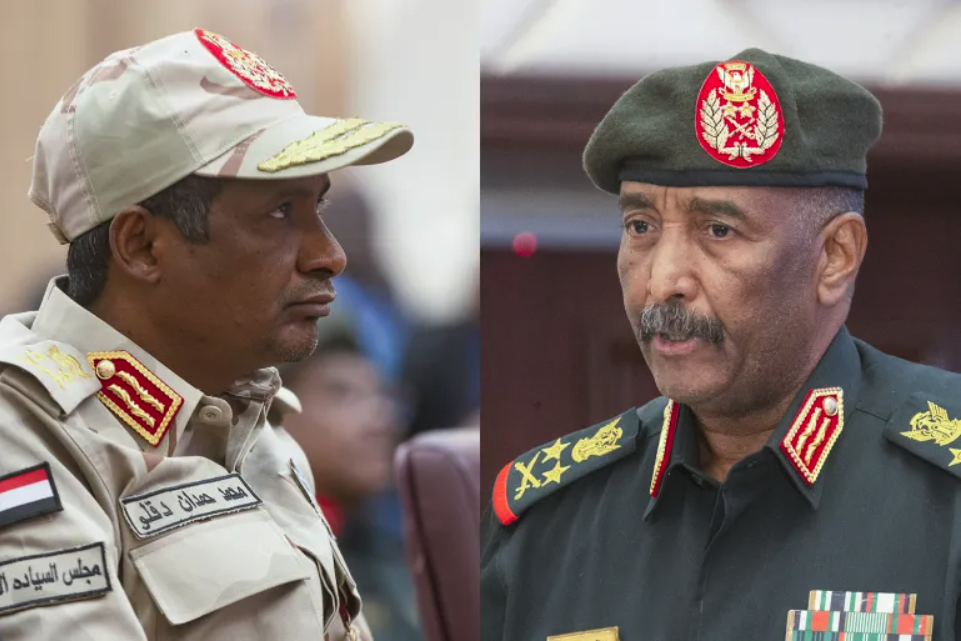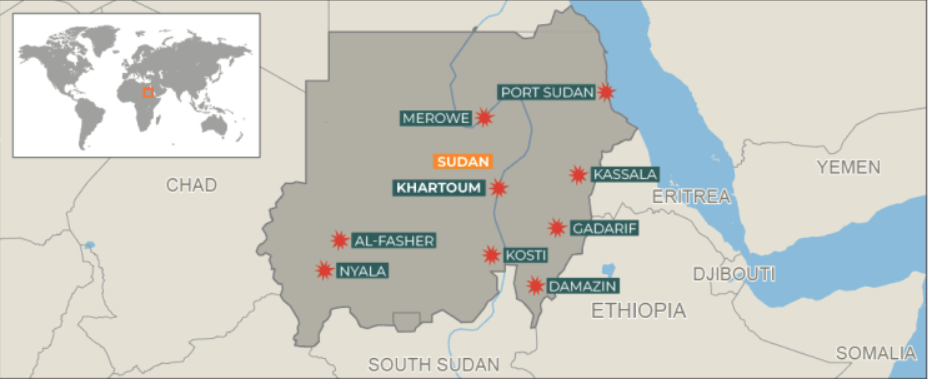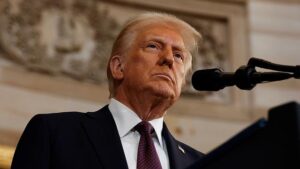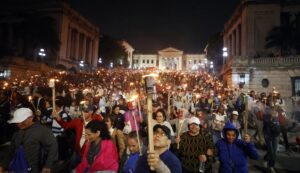
Published 18/04/2023 19:04 | Edited 04/19/2023 09:57
Fighting broke out on Saturday (15), after weeks of tension between the Sudanese army and the powerful paramilitary group Rapid Support Forces (RSF). A scenario similar to what happened in the Ethiopian region of Tigray.
Both groups were allies. Together, they took power in a coup in 2021, against the attempted transition to a civilian government.
Tensions increased as the proposal to integrate the RSF into the national armed forces evolved.
The key issue is who would be in control and who would be commander in chief of the military during a period of integration.
Most of the fighting is taking place in the capital, Khartoum, but clashes are reported across the country. At least 185 people were killed and thousands were injured in the first three days. There has still been no evacuation of foreigners and a precarious truce has prevented residents of the capital from leaving for safer areas.
Countries on the continent are concerned about the situation, as they fear that the conflict will expand and become similar to the situation in Libya, where factions do not allow a central government and maintain political instability.
rival friends
The protagonists of the outbreak of violence are army general Abdel Fattah al-Burhan and his deputy and leader of the RSF, general Mohamed Hamdan Dagalo, better known as Hemedti.
In October 2021, al-Burhan and Dagalo orchestrated a coup, overturning a fragile transition to civilian rule that had begun following the 2019 removal of longtime ruler Omar al-Bashir.
Al-Burhan, a career soldier from northern Sudan who rose through the ranks under al-Bashir’s nearly 30-year rule, took the top job as Sudan’s de facto ruler after the coup. Dagalo, of the Rizeigat Arab people, camel herder from Darfur, took responsibility as his number two.
As the army and civilian leaders came together to try to reach an agreement to end the political crisis that the coup brought, the integration of the RSF into the regular army became a key point of contention.
An agreement hammered out in December for the negotiation heightened tensions between al-Burhan and Hemedti, when it elevated Hemedti’s rank to Burhan’s level rather than his deputy.
RSF Declaration
The RSF were created in 2013 and evolved from the so-called Janjaweed militias, accused of war crimes in the Darfur region. During the Darfur conflict in the 2000s, the government used the group to help the army quell a rebellion.
In 2017, a law was passed that legitimizes the RSF as an independent security force.
As he rose to prominence, Dagalo’s business interests grew with al-Bashir’s help, and his family expanded holdings into gold mining, ranching, and infrastructure.
Despite being a longtime ally of al-Bashir, Dagalo was instrumental in overthrowing the president when the 2019 uprising broke out.

The regional framework
Sudan borders the Red Sea, the Sahel region and the Horn of Africa. Its strategic location and agricultural wealth attracted regional power plays, complicating the chances of a successful transition.
Several of Sudan’s neighbors, including Ethiopia, Chad and South Sudan, have been affected by upheavals and political conflicts.
Sudan’s relationship with Ethiopia has been tense over disputed agricultural land along its border; the conflict in the Tigray region of Ethiopia, which has driven tens of thousands of refugees into Sudan; and the Great Ethiopian Renaissance Dam.
The regional heavyweights of Saudi Arabia and the United Arab Emirates, which forged close ties with the RSF when it sent thousands of fighters to support the war in Yemen, called on both sides to withdraw.
The oil powers, the United States and the United Kingdom form the “Quad”, which has sponsored mediation in Sudan along with the United Nations and the African Union.
Western powers fear that Russia could establish a military base on the Red Sea, to which Sudanese leaders have expressed openness since the al-Bashir era.
Egypt, which supports Sudan’s military, sought an alternative route with groups that backed the 2021 coup.
zero sum game
Analysts estimate that the struggle for power can define existence or death for both sides. With both generals out for blood, it’s unlikely they’ll make it to the negotiating table without one or both of them suffering heavy losses.
The more they battle in the city streets, the higher the number of civilians and the harder it will be for any of the generals to rule the wreckage.
Information provided by Al Jazeera and international news agencies
Source: vermelho.org.br

